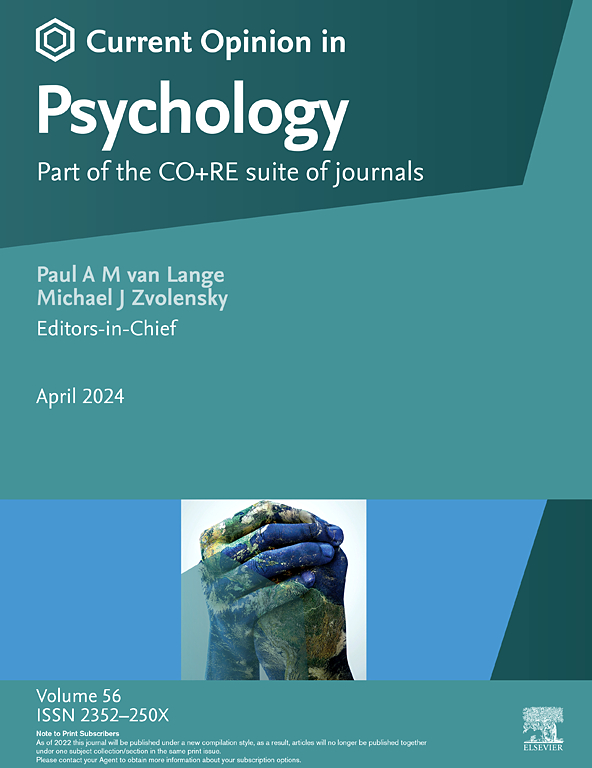自我失明和故意无知的好处
IF 6.9
2区 心理学
Q1 PSYCHOLOGY, MULTIDISCIPLINARY
引用次数: 0
摘要
虽然故意的无知——故意选择回避信息——通常是不适应的,但在某些情况下,故意的无知是有益的。在这里,我们回顾了关于自我盲的研究——评估者有意识地避免学习与评估目标无关或潜在有偏见的信息——作为故意无知的积极例子。我们强调了影响自我盲偏好的情感和认知力量,包括本能的好奇心和对潜在偏见信息价值的错误信念。我们回顾了影响自盲偏好的不同因素如何在实践中建议不同的干预措施来推动自盲。最后,我们讨论了关于自我盲的研究如何帮助推进关于故意无知的文献,以及越来越多的研究领域,特别是强调无知的好处。本文章由计算机程序翻译,如有差异,请以英文原文为准。
Self-blinding and the benefits of willful ignorance
While willful ignorance—deliberately choosing to avoid information—is often maladaptive, there are some instances in which willful ignorance is beneficial. Here, we review research on self-blinding—where evaluators consciously avoid learning irrelevant or potentially biasing information about evaluation targets—as a positive instance of willful ignorance. We highlight affective and cognitive forces that influence preferences for self-blinding, including visceral feelings of curiosity and incorrect beliefs about the value of potentially biasing information. We review how the different factors influencing self-blinding preferences suggest different interventions to nudge self-blinding in practice. Finally, we discuss how research on self-blinding can help advance the literature on willful ignorance in general and the growing area of research highlighting the benefits of ignorance in particular.
求助全文
通过发布文献求助,成功后即可免费获取论文全文。
去求助
来源期刊

Current Opinion in Psychology
PSYCHOLOGY, MULTIDISCIPLINARY-
CiteScore
12.10
自引率
3.40%
发文量
293
审稿时长
53 days
期刊介绍:
Current Opinion in Psychology is part of the Current Opinion and Research (CO+RE) suite of journals and is a companion to the primary research, open access journal, Current Research in Ecological and Social Psychology. CO+RE journals leverage the Current Opinion legacy of editorial excellence, high-impact, and global reach to ensure they are a widely-read resource that is integral to scientists' workflows.
Current Opinion in Psychology is divided into themed sections, some of which may be reviewed on an annual basis if appropriate. The amount of space devoted to each section is related to its importance. The topics covered will include:
* Biological psychology
* Clinical psychology
* Cognitive psychology
* Community psychology
* Comparative psychology
* Developmental psychology
* Educational psychology
* Environmental psychology
* Evolutionary psychology
* Health psychology
* Neuropsychology
* Personality psychology
* Social psychology
 求助内容:
求助内容: 应助结果提醒方式:
应助结果提醒方式:


